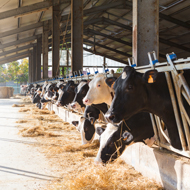SRUC to invest in Inverness and Ayr facilities

"It was clear that local stakeholders felt we needed to maintain a facility in the Inverness area."
A veterinary laboratory that carries out post-mortem examinations on livestock in Inverness will remain open, Scotland's Rural College (SRUC) has confirmed.
Last year, a consultation sought views on proposals to close the facility, triggering strong opposition from stakeholders.
Now, animal disease surveillance services at Inverness and Ayr will continue. SRUC will also invest in a new post-mortem facility for Inverness, which is expected to be ready by the middle of next year.
Mike Winjberg, managing director at SAC Consulting, said: "It was clear that local stakeholders felt we needed to maintain a facility in the Inverness area and so we revised our plans to ensure we could support local requirements."
The existing site at Drummondhill will close, but the services will be relocated to a new site.
SRUC Research and SAC Consulting staff are in the process of moving to a new state-of-the-art facility on the Inverness Campus.
In Ayr, SRUC will develop the existing facilities on the Auchincruive Estate in order to co-locate veterinary and consulting staff (as well as some research staff) in newly refurbished facilities at Nellies Gate. The college says significant investment will be made to renovate and upgrade the Nellies Gate facilities and vet centre. Work is expected to take 12 months to complete.
Mr Wijnberg added: "While there will be changes on both sites with investment in new facilities, both sites remain fully operational throughout the changes and we do not envisage any interruption to the services our veterinary surveillance clients receive."



 The Federation of Independent Veterinary Practices (FIVP) has announced a third season of its podcast, Practice Matters.
The Federation of Independent Veterinary Practices (FIVP) has announced a third season of its podcast, Practice Matters.